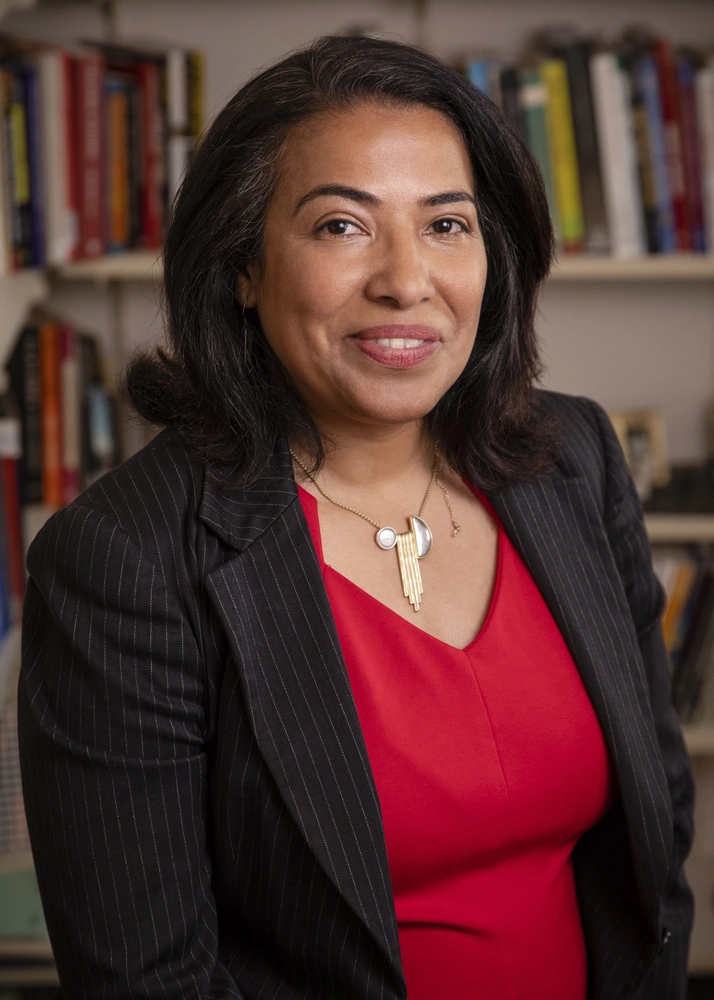
For most academics, sabbatical is a crucial time to focus on your research and a break from teaching duties. For administrators it’s especially essential, because their duties often leave little time to devote to their scholarship. For Isabel Molina-Guzmán, associate dean for student academic affairs for the College of LAS and professor of Latina/Latino studies and communication, it was a particularly welcome time to work on her next book, which has been a life-long passion project, and finish her co-edited collection that examines the contemporary reboot craze.
Molina-Guzmán’s next book is a return to a topic she’s been writing and thinking about since her master’s thesis on Spanish-Caribbean identity. The book will examine representations of Afro-Latinidad in digital spaces like Instagram or visual art and how those representations shape Afro-Latinidad identity formation. She will also look at how Blackness in Latina/Latino communities is represented or erased by others.
The book is also a personal project for Molina-Guzmán who identifies as Black Puerto Rican, or Afro-Latina. Both she and her family have been impacted by implicit bias against Blackness.
"It's a very personal project for me which always makes it harder. It's much easier to write objectively about things that don't touch you personally,” she said.
She hopes the book will have a large impact and that it will speak to questions that both Latina/Latino studies and African American and Black studies are struggling to answer.
“The big question is where does Blackness belong within Latinidad and in Latino studies? And where does Latinidad and Latino studies belong within Blackness?” she said.
Molina-Guzmán also spent her time on sabbatical finishing up her next edited co-edited collection, Rebooting Inequality, which will published next year by NYU Press. It examines the contemporary reboot craze and how rebooted television and films maintain the status quo in Hollywood. Instead of creating opportunities for stories created by or featuring BIPOC people, already established writers and actors, who are often white men, are the ones receiving those opportunities.
“We think that the politics of nostalgia has been part of what's driving audience desire for these older texts that arose at a time that people perceive to be as less conflicted, less politicized, safer, more comfortable,” she said. “So we contextualize it in that moment to explain why we have this constant desire to go back to a nostalgic past that never really existed, but in people’s memory they remember it as their happy place when the show was on.”
The edited collection also looks at reboots, like “Ghostbusters” or “Doctor Who,” that flip either the gender, race, or sexual identity of the cast members and the audience response to those reboots.
“The really hostile reactions to those reboots tell us about the politics of racial nostalgia and resentment and the desire by some fans to continue to want to see U.S. culture represented in a particular way, so that anytime you flip, the casting is seen as somehow an affront to their nostalgic memory of the show, but really what they're talking about is their comfort with whiteness and discomfort with racial, ethnic, gender or sexual difference,” she said.
Now that her sabbatical is over, Molina-Guzmán is back at work as the associate dean for student academic affairs. Though she misses teaching, she loves getting to think about the holistic experience of undergrads in the College of LAS. She oversees a staff of 45 people in recruitment and admissions, honors, career services, international programs, embedded counselors, and academic advisors.
“My role really is to provide the vision and the values for what we do to serve our undergrads and to serve our advisors in the college. So for me that's really opening up access for students, opening up opportunities for students to explore and be engaged with what's happening in the campus. . . So it’s pretty cool because my life is making sure things are working really well for the departments and advisors and the students that they serve, but the students are my priority.”
Her current role isn’t the first influential office she has held in the College of LAS. She was previously the associate dean of inclusive excellence, an office she helped create. Before that, she was the foundational chair of the Latina/Latino Studies Department who led the department through the transition from an academic program to an academic department at the university.